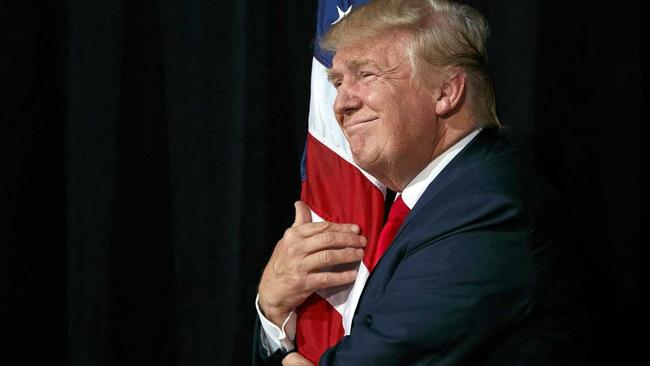How Trump's presidential win signals a global change
DONALD Trump's victory is more than just an election of another American president - it is a regime change.

Ballina
Don't miss out on the headlines from Ballina. Followed categories will be added to My News.
DONALD Trump's victory is more than just an election of another American president - it is a regime change.
This momentous event will affect the functioning of both American and global institutions.
It will also affect the politics of everyday life, especially those domains often associated with women and minorities, household economies, health and education, welfare and social care, migration and reproduction.
This is a victory for a particular kind of masculinity - paternalistic and violent, punishing to those who do not fit its standards.
Yet Trump is not a unique political phenomenon, but a symptom of disenchantment with globalisation.
His victory is a product of homegrown economic problems gone viral, pandering to white fears, botched military interventions and millions of wounded bodies.
READ MORE ANALYSIS OF THE US PRESIDENTIAL ELECTION
It is also a reflection of the worldwide shift toward populism in reaction to the increases in economic inequality, the perceived elitism of politicians and parties, uncertainty about the future and threats to economic and physical security from within and without.
Whether it's in Brazil, Russia, Poland, Turkey, the Philippines or the UK - and soon, possibly, France and even Australia - liberal elites have been sent packing because of their apparent failure to sustain the entitlements of blue collar, white men.
They were unable to deliver on the expectations of key constituencies with the unleashing of competitive globalisation.
Thus, it should not surprise us that Trump's win was not pulled off by poor working class whites alone.
Women simultaneously rushed to vote and were sharply divided by it.
The 2016 election represents the biggest gender gap in voting since 1973, but Hillary Clinton has not benefitted much - if at all - from group solidarity among women.
LOCAL REACTION:
Trump beat Clinton 53% to 41% among men and Clinton won among women by 54% to 42%.
More women voted Democrat than ever before, and more men voted Republican.
Shockingly, 53% of white women voted for Trump, even though early polling showed them more likely to support Clinton.
Even 45% of women with a college degree voted for Trump.
Whatever gains Clinton made among women, it was thanks to women of colour.
White women have clearly made patriarchal bargains: they may benefit economically as part of male breadwinner, heterosexual family households from a Trump Presidency tax cut dividend. On the downside, they now also will be represented by a President who advocates "grabbing pussy".
There are several implications of Trump's victory for women in general and feminism in particular.
First, after this election - and despite Hillary Clinton's emotional concession speech - it is unlikely that politics would now seem an attractive calling to young women.
One look at what happened to Clinton would deter most.
It seems you can't win even when you're smart, capable and qualified. This indicates a deeply ingrained sexism within US democracy.
One example of this is the United Kingdom, where women's perspectives hardly featured in the pre-referendum Brexit debate and are still hard to find, despite the ascension of a female prime minister.
Second, Trump would not have been elected in a world serious about tackling violence against women.
We can expect the further trivialisation and normalisation of sexual and gender-based harassment, abuse and violence.
The vote highlighted that those who were worst affected by the global financial crisis and housing bubble in the US - African American women - voted for Hillary in droves (93%).
LOCAL REACTION:
These women know that women of colour, women-headed households and women employed in the public sector with less income and assets than men will not be helped by slashing the corporate tax rate and Obamacare.
What does Trump's win mean for feminism? There is no doubt that feminism now operates between two poles - rising misogyny and scapegoating of women - (Hillary Clinton was more hated than Donald Trump) and the potential for mobilisation (women came together after revelations about Trump's sexually abusive language and behaviour).
Perhaps Clinton's version of feminism is outdated - stuck in the 1990s, under the shadow of her husband's term as US President, and surrounding herself with generals, CIA officials, former Republicans, in order to prove her competence.
Feminism - and feminist activists - now need to recharge their batteries, forge solidarity with people of colour, immigrants and minorities everywhere.
This needs to happen in local elections, non-profits and grassroots organisations.
We need to take economic concerns - of men and women, and particularly of men and women of colour - very seriously. We need not feel ashamed of appealing to emotions as much as reason in advocating for equality and social justice.
Jacqui True is Professor of Politics and International Relations at Monash University.
Aida Arfan Hozic is Associate Professor of International Relations at the University of Florida.
Originally published as How Trump's presidential win signals a global change


